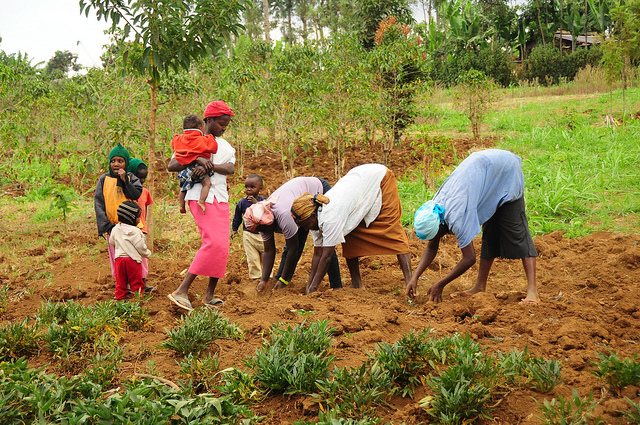Fertiliser producers in Kenya, Tanzania and Uganda are to get cheaper access to credit under a fertiliser investment plan prompted by research showing the region’s farmers were accessing less than half the fertiliser they needed to improve their yields and make the continent food secure.
Most fertilizer producers and importers currently access credits from commercial banks at interest rates of between 20 and 30 per cent: levels that are limiting supplies of the commodity.
“Without increasing the use of fertilizer especially by the small scale farmers, it will be difficult to feed the continent,” said Soil Health at Alliance for Green Revolution Africa (AGRA) Director Dr Bashir Jama. AGRA is one of the development groups working on the subsidized credit access.
Together with the African Development Bank, the African Fertilizer and Agribusiness Fund, the International Fertilizer Development Centre (IFDC) and the Agricultural Market Development Trust (AGMARK), AGRA carried out research in the three countries to guide the new agriculture investment policy with an emphasis on public private partnerships.
The studies found that in Kenya, only half of the fertilizer required is available and used. Kenya currently uses 500,000 tonnes of fertilizer a year against the required one million tonnes, while maize farmers use 130,000 tonnes a year compared with the required 360,000 tonnes.
In the three countries surveyed, only 30 percent of the arable land receives fertilizer.
In Africa, the use of fertilizer averages only eight kilogrammes per hectare which is only 10 percent of the world’s average.
It is estimated that Africa receives only one per cent of global fertilizer supplies, a factor that is blamed for low food yields on the continent, which grapples with food shortages year in, year out.
Food production experts now believe one of the ways forward is to increase collaboration between the private and public sectors on production, import, supply and marketing.
The new model will require countries to have properly defined PPP laws to guide the methods of collaboration t o ensure the partnerships succeed.
The group said it will also upscale a system where commercial banks are providing credit on soft terms to agro dealers to enable them to set up shops close to the farmers to ease access.
In Kenya, for example, Equity Bank has been financing rural agrodealers to set up or expand their businesses under an agreement where AGRA provides a credit guarantee system to cushion the bank in case of default.
One of the long term measures proposed by the experts is to promote the local production of fertilizers to reduce the cost of importing, which is affected by the volatility of African currencies.
Most African countries already have deposits of the mineral, phosphate, that is one of the three ingredients of fertilizer- the others being nitrogen and potassium. “The rock is available all over in Africa and this will ease the search for the raw materials required to make our own,” said IFDC representative Philip Karuri.
African countries have been working on a programme to increase the use of fertilizer for almost a decade now, with food experts arguing the commodity is an important farm ingredient that can help the continent escape from its perennial food problems.
In 2003, African heads of states adopted the Comprehensive African Agricultural Development Programme (CADDP) which calls for 6 per cent annual growth in agricultural production, as a framework that represents an African vision to restore agricultural growth.
CADDP identified ways for African countries to develop national plans for outlining agricultural priorities, among which the increased use of fertilizer was identified.
In 2006, the African Union held the African Fertilizer Summit which resulted in the development of a roadmap for achieving food security in Africa, known as the Abuja Declaration on Fertilizer for an African Green Revolution.
Given the extensive fertilizer raw material resources in Africa and the fact that they are underutilised, the AU members undertook to foster national fertilizer production.
Content Courtesy of FarmBizAfrica.com
Photo Courtesy of eatdrinkbetter.com
 Fenesi.com Entrepreneurship Blog
Fenesi.com Entrepreneurship Blog




